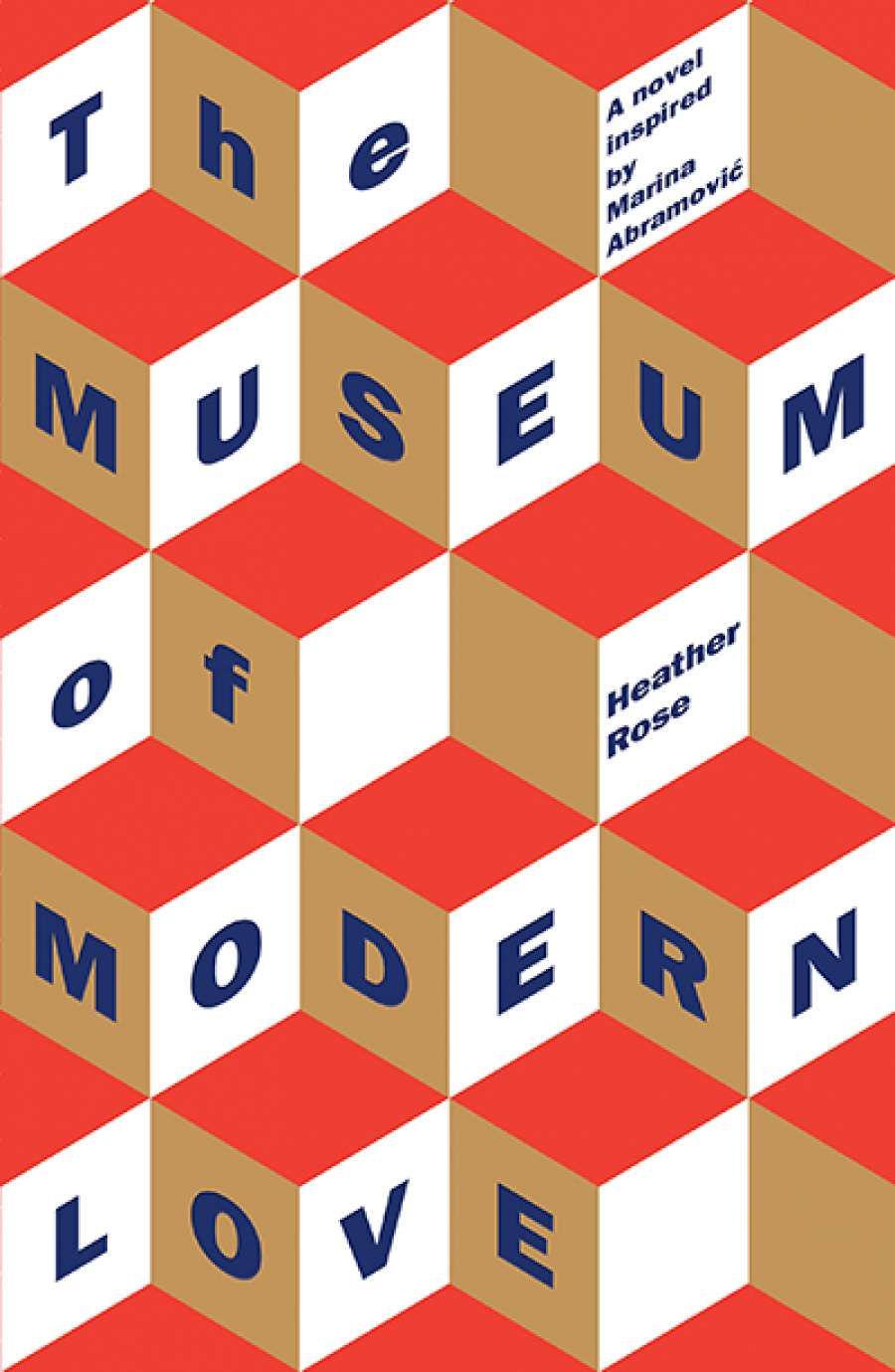
- Free Article: No
- Contents Category: Fiction
- Custom Article Title: Duncan Fardon reviews 'The Museum of Modern Love' by Heather Rose
- Review Article: Yes
- Online Only: No
- Custom Highlight Text:
E.B. White once said there were three New Yorks, comprised of those who were born there (‘solidity and continuity’), the daily commuter (‘tidal restlessness’), and the searcher on ...
- Book 1 Title: The Museum of Modern Love
- Book 1 Biblio: Allen & Unwin $27.99 pb, 278 pp, 9781760291860
To sit with Abramovíc is ‘utterly public but intensely private’, and it is the private that the novel tracks. This exploration of the abstract, ineffable nature of art through the personal is a profound one: the breakdown of structure becomes an attempt to reconnect with a basic, if flawed, humanity, while concurrently peering into the abyss.
The novel is propelled by a simple imperative: will Arky Levin sit? On the sidelines, he fashions an Abramovíc from pillows while he composes late into the night. Tragedy has bought him solitude and a growing sense of estrangement. Arky’s plight is drawn delicately; successful in his career, his dissatisfaction stems from artistic sensibility rather than entitlement, a subtle distinction that is a testament to the strength of Rose’s writing.
The recent popularity of Marina Abramović has all the trappings of a celebrity cult, but Rose dispels any forebodings by revealing a diverse, rich, disciplined history: the hardship of the Yugoslavian War which shaped her; the years with Ulay working and living together in a van, and the toll on her body.
Not that it’s ponderous. Art, which can never be unequivocally universal, is explored from a variety of angles, in snippets of overheard conversation (profound, opinionated, banal, sometimes amusing), and in the debates and reflections of Rose’s characters. Never didactic, this is one conversation worth following.


Comments powered by CComment